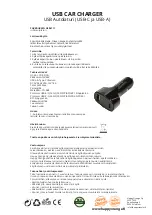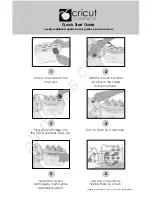
15
Let’s consider now that you would like to progress against the wind. To ride in the wind direction, that is to
say towards a location forcing you to move headwind, you will have to tack (to progress with turns close to
the wind direction). As shown on picture 43, you will make headwind turns. In order not to slow down too
much when you are oriented right in the wind direction, turn quickly and without easing the sail sheet,
release the sheet just a little bit once the sail has caught the wind on the other side in order to regain some
power just after the turn is completed.
Picture 43: sketch illustrating a landyacht tacking headwind.
Now, let’s consider what is hidden behind the words “apparent wind”. The apparent wind is the wind the
landyacht driver is feeling. This wind results from the combination of the true wind (the one you feel when
the landyacht is stoppped) with the wind generated by the landyacht speed. Thus, if the landyacht speed is
very high, the wind felt on the landyacht will appear as blowing almost from the front, close to the
landyacht direction. You have a similar feeling when you drive at 130 km/h on the highway and you put
one hand out of the car: should a moderate cross wind blows, you will nevertheless feel a wind blowing
from the front of the car, even if you see the trees leaning perpendicularly to the highway due to the true
wind.
For those of you familiar with vectors, the picture 44 explains why the combination of the true wind with
the wind generated by the speed, results in an apparent wind closer to the landyacht direction than the
true wind direction. With this sketch, one will easily understand that the higher the landyacht speed, the
higher the wind it generates, and the closer to the landyacht direction the apparent wind is. One
straightforward consequence of this is that for a given true wind, the higher the landyacht speed, the more
you will have to haul the sail sheet taut to bring the sail closer to the landyacht axis.
Wind
Headwind turn
Headwind turn
Headwind turn


































